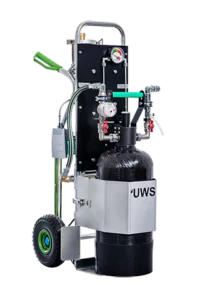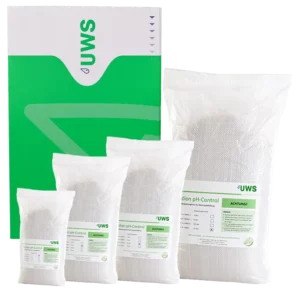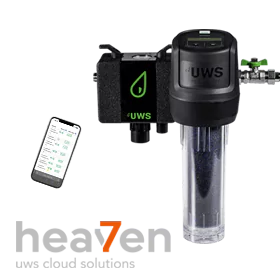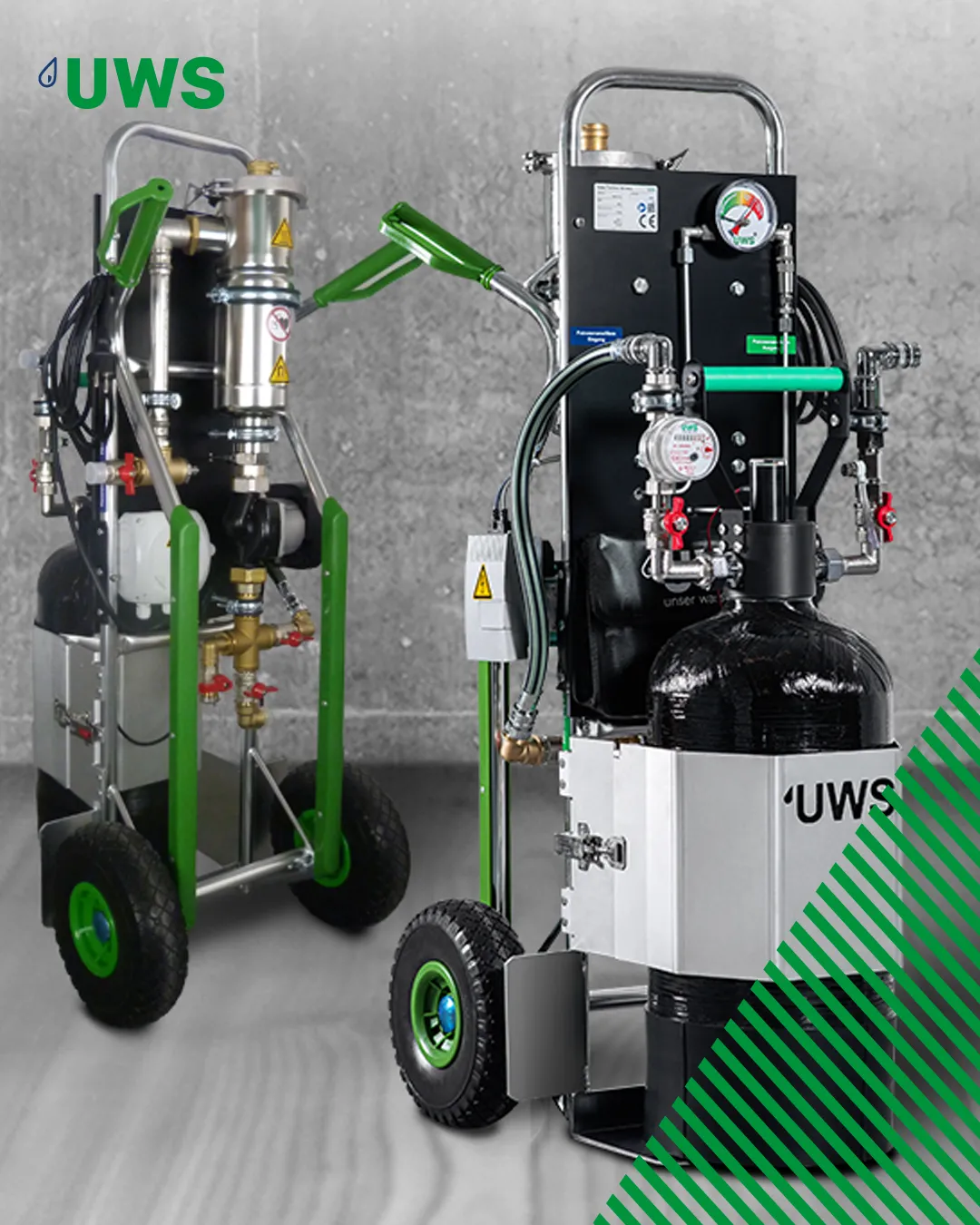Desalination in heating technology: Why only “chemically calm” water provides long-term protection
For all those who fill systems with responsibility
Anyone operating heating systems correctly cannot ignore the water quality. Especially in modern systems with mixed installations made of aluminum, stainless steel, steel or plastic, one thing is clear: softening alone is not enough.
Because even if the water is “limescale-free”, aggressive ions such as chloride or sulphate remain in the system – and with them the risk of corrosion, damage and downtime.
The solution:
Desalination with mixed bed resin, as is possible with our Vadion pH Control, for example. This allows you to achieve what counts in practice: chemically calm water – and that is the basis for standard-compliant, trouble-free operation.
What happens during desalination?
During desalination, the heating water is passed through mixed bed resin – a combination of cation and anion exchangers.
The highlight: not only calcium and magnesium are removed, but also:
- Chloride (Cl-)
- Sulphate (SO₄²-)
- Nitrate (NO₃-)
These ions are considered to promote corrosion and – even with softened water – are often the cause of pitting, sludge formation and material failure.
Reduced conductivity = reduced risk
Every dissolved salt compound contributes to the electrical conductivity of the water – and it is precisely this that is the key indicator of the corrosion potential in the system.
Desalination reduces the conductivity to values below 100 µS/cm – as required by VDI 2035, ÖNORM H 5195-1, SWKI BT 102-1 and numerous appliance manufacturers today.
The result:
✅ Corrosion-free operating conditions
✅ Stable pH values
✅ No deposits
✅ Maximum service life for heat generators, pumps and heat exchangers
In short: chemically calm water means that almost nothing reacts in the system – and that is exactly what you need for long-lasting technology.
Why this is particularly important today
Modern heating systems combine a wide variety of components:
- Heat pumps with stainless steel heat exchangers
- Condensing boilers with aluminum-silicon alloys
- Panel heating systems with large water volumes
- Plastic composite pipes with diffusion-open structure
All of these are mixed installations in which electrochemical voltage differences quickly occur – as soon as there are too many ions in the water.
Only desalinated water with low conductivity and a stable pH value can reliably prevent these reactions.

Heaty Ferriline No. 2
Complete unit for professional bypass treatment, sludge and magnetite filtration in the hot water area incl. MAGella twisterTo the product
What are the specific benefits of desalination in your everyday life?
Less maintenance
No sludge, no pitting, no clogged heat exchangers.
Better efficiency
No deposits = optimum heat transfer.
Fewer returns
Water treatment to standard protects against loss of warranty.
Standard safety
VDI 2035, ÖNORM H 5195-, SWKI BT 102-1 EN 1717, manufacturer’s specifications – all fulfilled.
Sustainable operation
Less energy used = less CO₂ = satisfied customers.
When does desalination make sense?
Quite simply: almost always.
Even supposedly good filling water often contains too much chloride or sulphate. Desalination is the only way to safely remove these substances.
You should use desalination for:
- Initial filling of new systems, e.g. with Heaty Ferriline No. 2
- Make-up via stationary filling combinations, such as Heaty Complete Professional
- Ongoing treatment in the bypass process, e.g. with Heaty Profiline No. 2
- Renovation of older systems with high corrosion potential
The Vadion pH-Control mixed-bed resin is used in our devices for desalination and targeted treatment:
Desalination, pH stabilization and compliance with VDI values – all with one resin.

Mixed bed resin Vadion pH-Control
Our Vadion pH-Control is a mixed bed resin that not only desalinates the water to < 100 μS/cm (equivalent to 0-2 °fh) but also ensures that the pH value of the filling water is within the required range.To the product
How it works in practice – step by step
- Check conductivity – e.g. with the WaterBoy dual measuring device (pH + µS/cm)
- Desalination in bypass – without interrupting operation – Read more: Heating water treatment and filling for all system sizes
- Secure make-up – with EN 1717-compliant filling valve incl. system separator – Read more: Professional make-up according to VDI 2035
- Documenting values – in the system logbook and maintenance log
- Replace resin in good time – before capacity is exceeded
Combination tip: Desalination + make-up
The biggest mistake in practice: The initial filling is properly demineralized – but the top-up later runs again via the normal domestic water connection. This means you are gradually undoing the corrosion protection.
The solution: Permanently installed make-up solution with:
- System separator BA
- Water meter
- Mixed bed resin cartridge
- Optionally with flow monitoring and cloud connection
Read more: Professional make-up systems according to VDI 2035

Heaty Complete PROfessional
The Heaty Complete PROfessional is the world’s first smart IoT top-up system incl. Cloud connection – fully automatic, leakage protection and digital water meter.To the product
Conclusion: those who protect systems today are desalinating
Anyone who manages systems professionally today cannot avoid desalination. Softening alone is not a solution – it reduces hardness, but not the risk.
Desalinated water is the basis for chemically calm, stable and long-lasting heating systems.



